Racial justice is going to test this country politically. Americans are great believers in the power of individuals to transcend challenging situations and tend to look askance at policy solutions that depart from the assumption that individual Americans are not singularly responsible for their life’s outcomes. Yet, if we are to rise above the current moment of demands for racial justice, we are going to have to come to terms with the fact that some Americans are born with tailwinds at their backs while others are born with headwinds. If the COVID-19 pandemic has demonstrated nothing else, we now can acknowledge that there are fissures in American society that are beyond the power of the individual to remedy and that require the full and collective attention of the federal government and its citizens.
As we reflect on the last few weeks of demands for racial justice, particularly for Black men, and ask ourselves what it will take to achieve equity in this country, let’s consider the following recent statistics. As of April 2020, the Bureau of Labor Statistics (BLS) reported that the median weekly earnings of Black men were 75% of that of white men. In the most recent BLS unemployment report of May 2020, the average rate of unemployment for Black men was 15.5% compared to 10.7% for white men.
Now let’s look at those statistics over time. Since at least 1979, according to BLS data, Black men have consistently earned around 75% of what white men have earned. Since 2000, BLS data show that Black men have experienced an unemployment rate roughly double that of white men. What we can conclude from this information is that there is a consistent and significant gap in median weekly earnings and the average unemployment between Black men and their white counterparts that has not changed for decades. That means that regardless of whatever policies have been enacted thus far to address disparities in employment and income between Blacks and whites, those policies have not altered the picture of inequality we are considering here.
Let’s fill out the picture for Black men a bit more. BLS unemployment data does not include the roughly 1.4 million Americans who are incarcerated, 32% of whom are Black men. (Black men account for around 6% of the U.S. population). So, not only are Black men more likely to be unemployed, but if they are employed, they earn less than their white counterparts. In addition, Black men are also disproportionally likely to be out of the workforce altogether.
Let’s consider a few other potential ways that Black men might alter this picture on an individual basis. Going to inherit wealth? Probably not. Black men are born into Black households whose wealth has on average, since at least 1983, been eclipsed by that of white households by a ratio of at least 10:1.
Going to be successful getting a job? Black men will have to work harder at that. A 2019 study demonstrated that when Black males look for employment, they are 11-12 % less likely to get a callback than white applicants who have similar resumes.
All of that context ends in one startling statistic. My colleague, Richard Reeves, notes that the lower rates of upward mobility among Black men caused by a range of impediments in generating income and wealth, “have delayed the economic ascent of black men by a century.” Let’s pause to consider this. It will take a full century for Black men to catch up to the economic mobility enjoyed by white men.
America, the problem we have is too big to be overcome by any individual American. What this means is that there are no actions that Black men can take unilaterally to alter this grim picture. Creating a just and equitable chance for Black men is going to require a New Deal. That New Deal must tackle racism in all its manifestations. Congress will need to consider a robust package of measures that target generating good jobs, subsidizing educational attainment, investing in Black communities and health care for Black Americans. These measures must incentivize employers to employ and develop Black applicants and law enforcement to focus on diversion programs and risk-based policing.
Will it look “fair?” Congressional representatives will have to work to help their constituents and the American public recognize that undoing 400 years of racism requires targeted solutions and that enduring inequities cost us all. This is the moment to highlight the object lesson from the pandemic – when one of us gets sick, others are more likely to also get sick. The policies and cultural conventions of neglect that have resulted in greater vulnerability to COVID-19 among Black communities are the very same ones that have increased vulnerability across the U.S. Ultimately, this is not about fairness –it is about acknowledging that we made cruel choices over the last 400 years. The only remedy is one that is targeted to Black Americans, large and multifaceted.
The Brookings Institution is committed to quality, independence, and impact.
We are supported by a diverse array of funders. In line with our values and policies, each Brookings publication represents the sole views of its author(s).
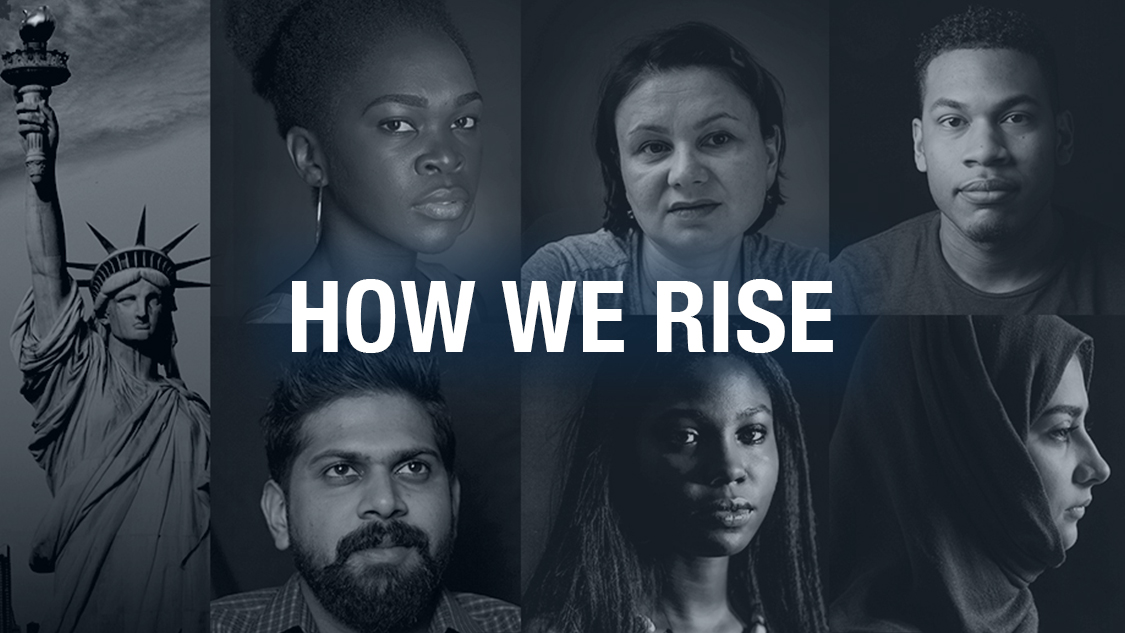

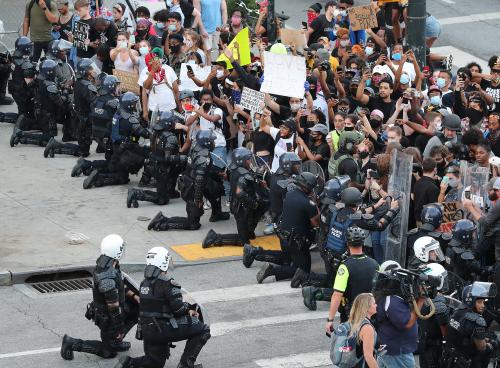
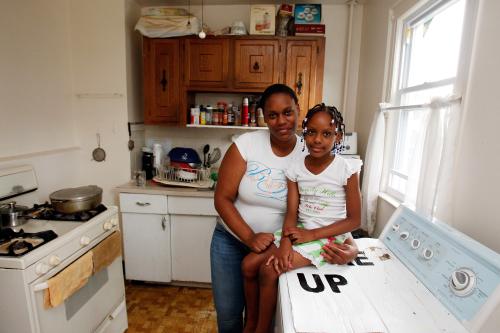

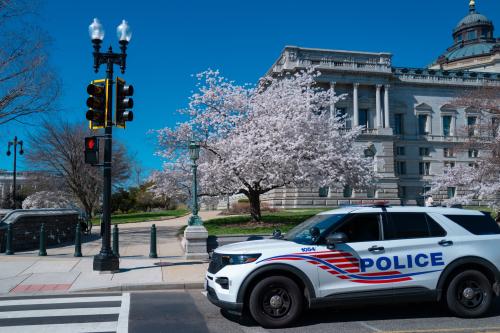
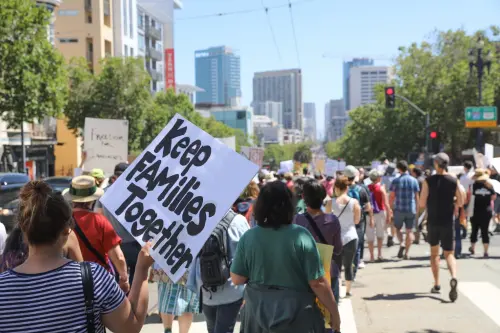

Commentary
America: Individual effort is not going to help us address racism
June 11, 2020